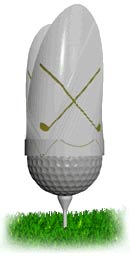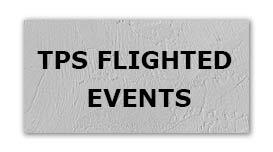|




|
Every golfer needs to get carded
Establishing
a handicap is easier than ever,
and Golf Digest is here to help get you
started
By Peter McCleery
Golf
Digest
Matt McGrath is your typical, vagabond New Jersey public golfer. But
establishing a handicap is complicated for him because he lives in a county that
doesn't have a public course, and he doesn't belong to a golf club. A title
examiner in Manhattan, McGrath likes to compete and says life as an
un-handicapped golfer "stinks." He and his buddies play the guessing game. "I
play with my brothers and friends all the time, and we just have to estimate our
handicaps," he says.
McGrath and his buddies are among
the majority of American golfers -- they don't possess an official U.S. Golf
Association Handicap Index. Of the 26.2 million golfers in the United States
(adults who played at least one regulation round in the past year), as
calculated by the National Golf Foundation, less than 20 percent have an
official handicap. "Every golf association in the country sees those stats,"
says Jim Cowan, handicap director for the Northern California Golf Association.
"We wonder, How do we bring more people into the fold?"
Commencing with
this issue, Golf Digest is launching a campaign to encourage more golfers to get
a handicap. We recommend establishing a handicap through the USGA Handicap
System (www.usga.org/handicap), but
if that remains too daunting, we offer the Golf Digest Handicap as a free, easy
and reliable entry-level alternative (Click here to
register for the Golf Digest Handicap tool).
Duane Rost took up
golf more seriously in the past few years after retiring from Youngstown State
University in Ohio. But when he signed up for an international "net" competition
that factors your handicap into your score, he was assigned a handicap because
he didn't have one. "They assigned me a 22, which is about 10 shots lower than
it should be," says Rost. "So I started the [four-round] tournament about 40
shots behind." Sensitized that not having a handicap was a handicap, Rost now
has one: He's a 31.2.
Golfers without handicaps, even though they're in
the majority and are violating no rule by not having one, take their share of
heat. They're sometimes known as "Aboutas" -- as in, "I'm about a 12." Dirk
Kingma, a past president of the Southern California Golf Association, explains
the rudimentary thinking: "The Abouta figures his handicap like this: Take your
average score and subtract 72, then add a couple [just in case you need 'em!],
and there's the number!"
Dave Tiberii, a Connecticut public golfer, says
not having a legitimate handicap "calls into question whether you're legit. You
definitely get some ribbing, especially if you're playing well. When you don't
have the number to back it up, it can be kind of awkward." Like many
un-handicapped golfers interviewed for this article, Tiberii says he plans to
get a handicap this season. "I don't feel like a complete golfer without one," he says.
Construction worker Matt Reeves is in a similar situation. As
his game progresses, he hopes to play in tournaments, and he knows having a
handicap would upgrade his status. In the meantime, he and his friends play each
other without surrendering or taking strokes -- even though one player in the
group wins a disproportionate amount of the time.
| WHAT IS A
HANDICAP? |
A handicap,
defined by a number, is a measure of a golfer's potential ability compared to an
expert amateur's ability.
It allows all golfers to compete on an equal
basis. A USGA Handicap Index is calculated using a fairly complex formula that's
applied to the best 10 of a golfer's last 20 rounds. A USGA Course Rating
indicates the playing difficulty (total strokes) of a course for scratch
(0-handicap) golfers. So on a course with a 72.0 rating, a 10-handicapper will
score, on average, 82 to 88. |
For golfers who belong to private clubs, getting a handicap is routine. "If
you join a private club, they put you on the handicap roster automatically,"
says Steve Foehl, executive director of the New Jersey State Golf Association.
"If you're a public golfer, you have to initiate the effort."
Getting a
USGA handicap does require membership in a "club," but it can be the golf group
at your local public course or your own ad-hoc assemblage of 10 forming a "club
without real estate." Says Kevin O'Connor, the USGA's senior director of
handicapping: "When people hear that you have to join a club, it stops a fair
amount of them in their tracks." A survey of 9,225 golfers conducted by the
website golfserv.com showed a healthy appetite
for handicaps among those who don't have one, but also intimidation ("I'm not
good enough") and lack of information ("I don't know how to go about
it").
"Sometimes," says golfer Pete Aldrich of San Diego, "you play with
friends and friends of friends, and they don't have a handicap, so they make
something up. It's not that they're cheating. They just don't know. I'd
encourage everyone to get a handicap, because it's not that hard to do
nowadays."
We concur, and hope to make it even easier. In coming months
the Golf Digest Handicap Campaign will answer commonly asked questions and offer
practical applications for players of differing abilities.
|
5 REASONS YOU SHOULD HAVE A HANDICAP |
 1.
Establishing some kind of handicap, even if it's not an official USGA Handicap
Index right away, will lend credibility to your ability level and to your status
as a golfer. "I look at it not as a badge of honor but something that tells
people you're a serious golfer," says Jay Mottola, executive director of the
Metropolitan Golf Association. 1.
Establishing some kind of handicap, even if it's not an official USGA Handicap
Index right away, will lend credibility to your ability level and to your status
as a golfer. "I look at it not as a badge of honor but something that tells
people you're a serious golfer," says Jay Mottola, executive director of the
Metropolitan Golf Association.
2. By posting your scores -- and in the
Golf Digest system, logging some simple statistical data -- you'll build an
effective tool for tracking your improvement
and trends over time.
3.
A legitimate handicap will help you to make matches with your friends and
playing partners fair and equitable, and it eliminates guesswork in the
allocation of strokes, perhaps strengthening your argument to get a few
more.
4. It will eliminate awkwardness in outings, member guests and
other competitions.
5. A USGA Handicap Index is required to enter most
state, regional or national competitions.
|
August 2003
|




